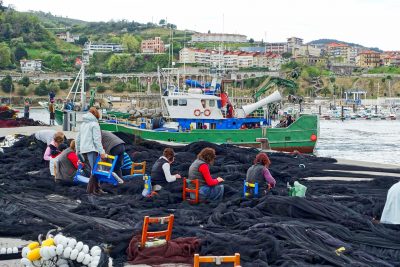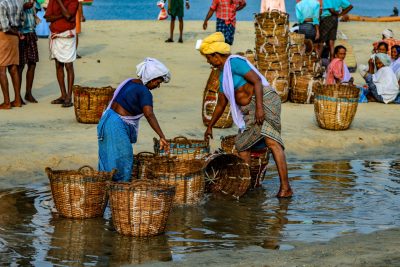Women and marginalized groups must be a part of decision-making processes in a Blue Economy

Image by Siggy Nowak from Pixabay
“This paper is a wake-up call for all parties in a Blue Economy to emphasize the importance of diversity, equity, inclusion, and to avoid the historical errors we made in other economies,” said Ilyass Dahmouni, co-author and postdoctoral fellow in the Fisheries Economics Research Unit at the University of British Columbia’s Institute for the Oceans and Fisheries. “We have made some mistakes. We don’t need to make them again now. We have to listen to when people talk.”
Ocean economies are projected to expand faster than the world economy from 2010 to 2030, and estimated to contribute about $100 billion per year to costal and island nation economies. The Blue Economy is a new way of recognizing the connections between oceans, people’s livelihoods, and the economy with a focus on using of marine resources fairly.
However, the Blue Economy is still contributing to social inequalities and inequities. Predominantly Black and Indigenous fisheries are at a much higher risk of suffering due to climate change, with these issues causing a great deal of stress among Black, Indigenous, and marginalized communities generally. Here in Canada, there is a historical and ongoing legacy of colonialism that prevents Indigenous communities from having their rightful roles as rights-holders and managers of marine areas and resources, practicing their own laws and customs, and being a part of all decision-making processes.
“We strongly advocate for capacity building for under-represented peoples to develop competencies and skills necessary for effective and efficient participation in the Blue Economy,” said Ibrahim Issifu, lead author and postdoctoral research fellow in the Fisheries Economic Research Unit at the Institute for the Oceans and Fisheries.
“We suggest accessible training, and other capacity building activities for marginalized groups to enhance their capacity to create and install renewable energy systems and technologies.”
Currently, most ocean resources are in the hands of a small group of transnational corporations who control large market shares of the sales of marine products and/or services. None of the headquarters of the corporations are in any of the top 5 countries with the highest population dependence on marine ecosystems in terms of nutrition, economic, and coastal protection.

Image by Vassos Kyriacou from Pixabay
“The exclusion [of women] from the decision-making process, or least excluding their welfare from the process, is a big failure to the Blue Economy,” said Dahmouni. “They are being underrepresented and therefore, their voices are not being heard. This must stop if we truly believe in a resilient economy.”
“We need to include everyone, not only marginalized groups, but everyone together because that will result in positive spillover [everywhere],” said Dahmouni. “Fishers and coastal communities need to be at the heart of this process.”
The Blue Economy is a relatively young field with the term coming to light in 2012. Efforts need to repair the damage of economies previous while also looking to prevent harming anyone else. “[Transformation looks like] acting proactively in a productive manner,” said Dahmouni. “We need to move into making sure that every action improves something for everyone or at least, does not harm someone somewhere else.”
“Creating prosperous communities while eliminating social inequalities is already a pretty good start.”
“Diversity, equity, and inclusion in the Blue Economy: Why they matter and how do we achieve them?” was published in Frontiers of Marine Science.
Tags: Blue economy, capacity building, Equity and Diversity, FERU, fisheries economics, Ibrahim Issifu, Ilyass Dahmouni, IOF postdoctoral fellows, marginalized groups, Rashid Sumaila, Research, women